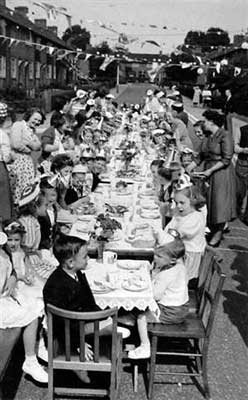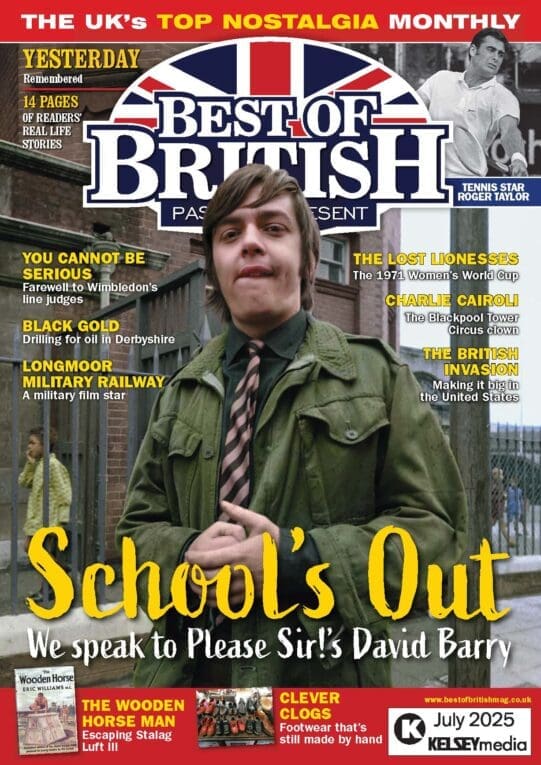
If you ever meet someone who says they come from the Cuckoo Estate, you can bet serious money that, within three minutes, they will tell you that Charlie Chaplin is the most famous Cuckooite. Technically, this isn’t true.
The estate was built during the 1930s, to re-house families from the more deprived area of London. The modern houses were regarded by the new residents as dreams come true. They had front and rear gardens, two or three bedrooms, an indoor toilet and a bathroom that made tin baths redundant.
On the eastern boundary were fields where we could play football, climb trees or paddle in the pond. To the south was the River Brent, where we fished for sticklebacks and retrieved golf balls, which could be sold back to careless golfers. It was also where most of us learned to swim before we could afford the luxury of the local swimming baths.
Enjoy more Best of British Magazine reading every month.
Click here to subscribe & save.
The pride of the estate was Cuckoo Avenue, which was really two roads, running from north to south. A tarmac walk down the centre, bordered by horse chestnut trees, was a prime site for those of us who were into conker tournaments.
At the northern end of the avenue was what we called the Old Cuckoo School. A huge Victorian building, surmounted by a clock tower, it had originally been built in 1856, as the Central London District School, a Poor Law school for children of destitute families and orphans. This provides the connection with Charlie Chaplin who, along with his brother Sydney, was sent there when their mother was unable to care for them. They attended the school from 1896 until 1898, so were never aware of the estate, which was built on land purchased from the establishment. However, we all need a hero and Charlie is our claim to fame.
With the outbreak of war, the already tight knit community became even more united and formed groups, among their neighbours, to help in digging out the ground, mixing cement and erecting Anderson shelters.
As the Blitz progressed, I ended up being evacuated to Wales. The only problem I had there was when my new teacher asked me to stand up and introduce myself to my classmates. From then on, I was followed everywhere by cries of ‘Cuck-ooo!’, which sounds even worse with a Welsh accent.
A year later, when I heard that my father, who was in a reserve occupation, had decided to enlist in the Army, I opted to go home. Three months later, we were bombed out, and I spent 18 months with an aunt in Hertfordshire, before our house was made safe enough to move back. By then I was old enough to go into the Senior Boys School, and always remember the woodwork teacher telling us to gather any timber from recently bombed houses to provide material for carpentry lessons.
I was elected to become the milk monitor, which involved helping a lady to set out fifty beakers and fill them from churns, one third of a gill to each beaker. Then I’d go off to summon the first class to the hall, return the beakers, refill them, and dash off for the next class. This activity took up most of the morning, so I missed a lot of lessons.
Underground air raid shelters had been built in a field opposite the playground and, during the doodlebug siege, I became the sweet monitor. If we sat down there for one hour, a teacher would produce a cake tin full of wine gums, and I had to hand one out to each boy, asking which colour they preferred, before digging around to select one and handing it over. Grubby hands were never taken into consideration.
When the war ended, we had the most spectacular street parties, the bonfires doing more damage to the roads than the Luftwaffe. The Old Cuckoo School became a youth club, among other things, and some of the rooms were rented out. Many years later, in 1969, a rock group named Deep Purple used one of them to rehearse their first big hit. At about the same time, another group named Spice also rented a room, overheard what Deep Purple were doing and, under their influence, became Uriah Heep.
As we grew into adolescence, many of the girls married American servicemen from a local Air Force base, which prompted their siblings also to leave home. This exodus was referred to as ‘moving beyond the Brent’.
But, I have always wondered why the estate was called ‘Cuckoo’ because I can never remember hearing one in the twenty years I lived there!
Derek Southon, Hadleigh, Suffolk
This article appeared in the February 2009 issue of Best of British.

